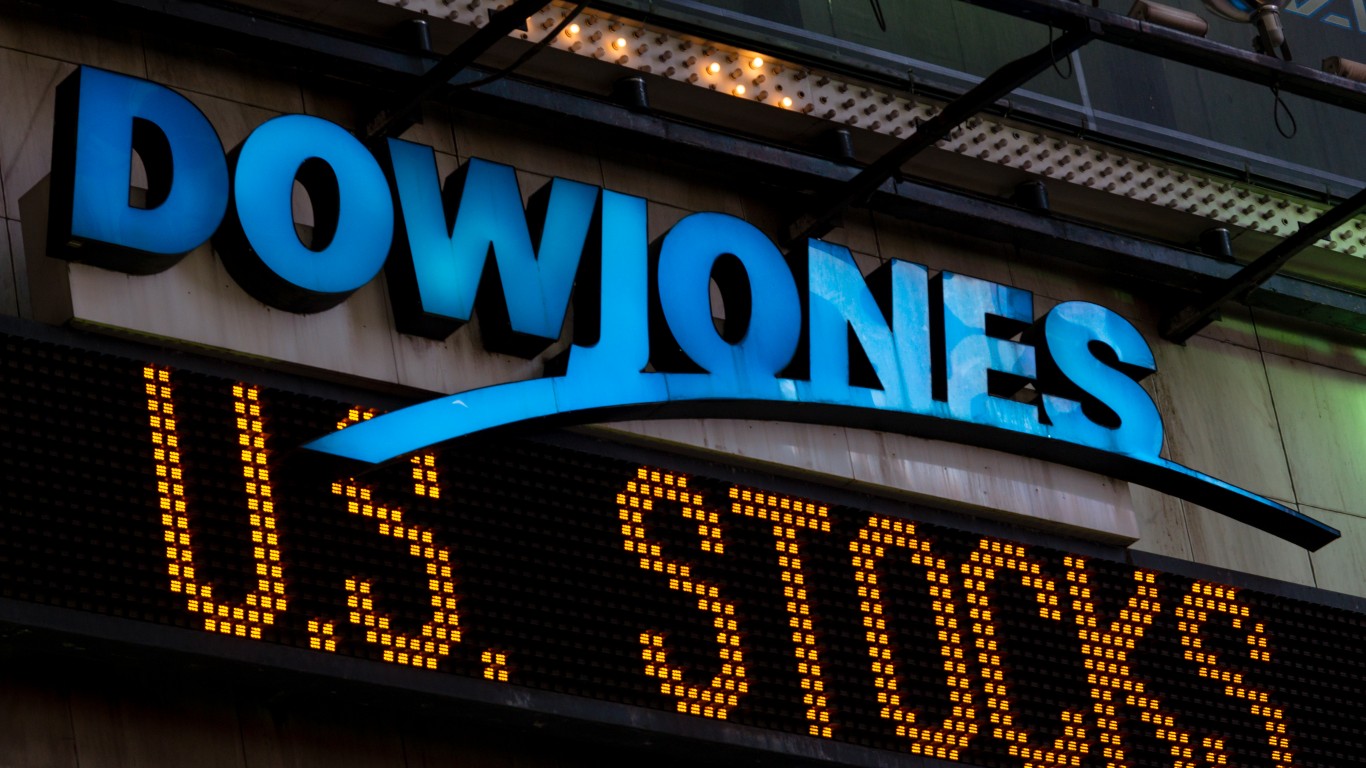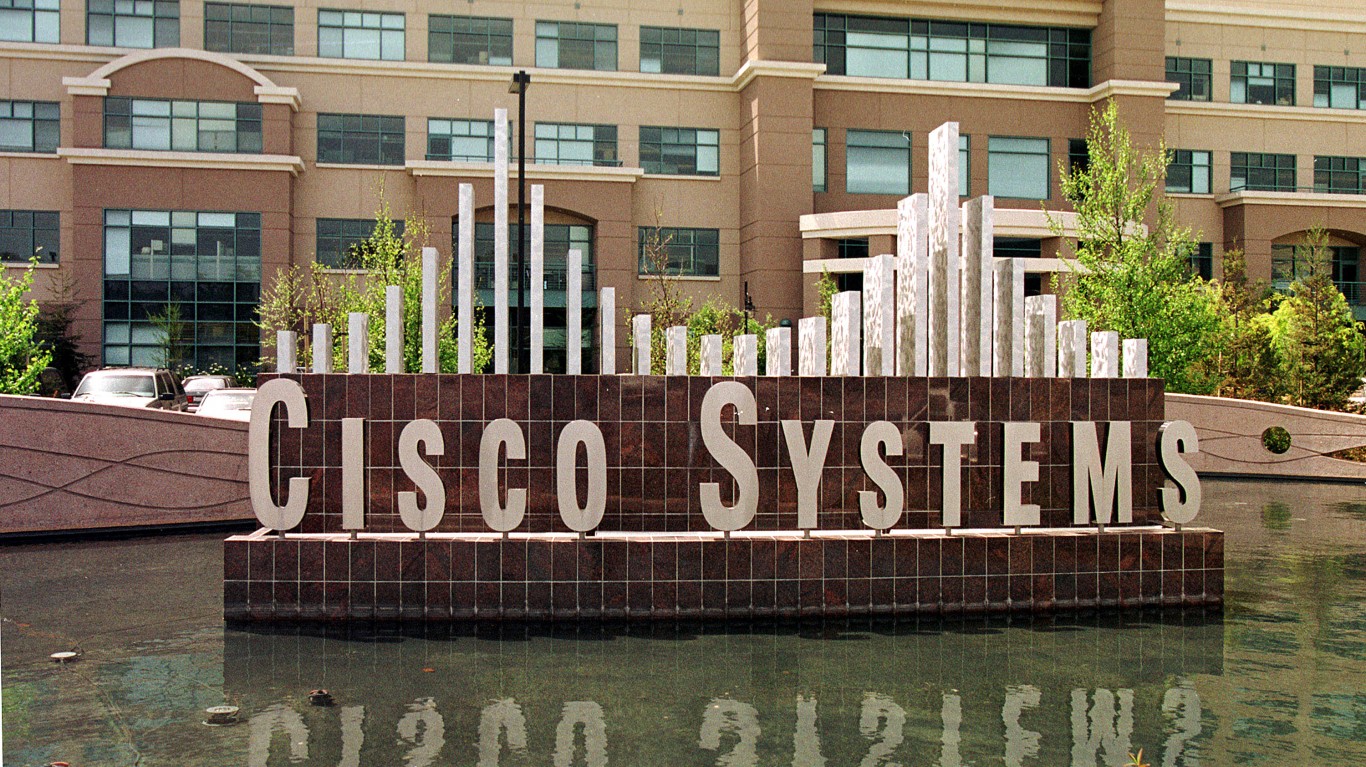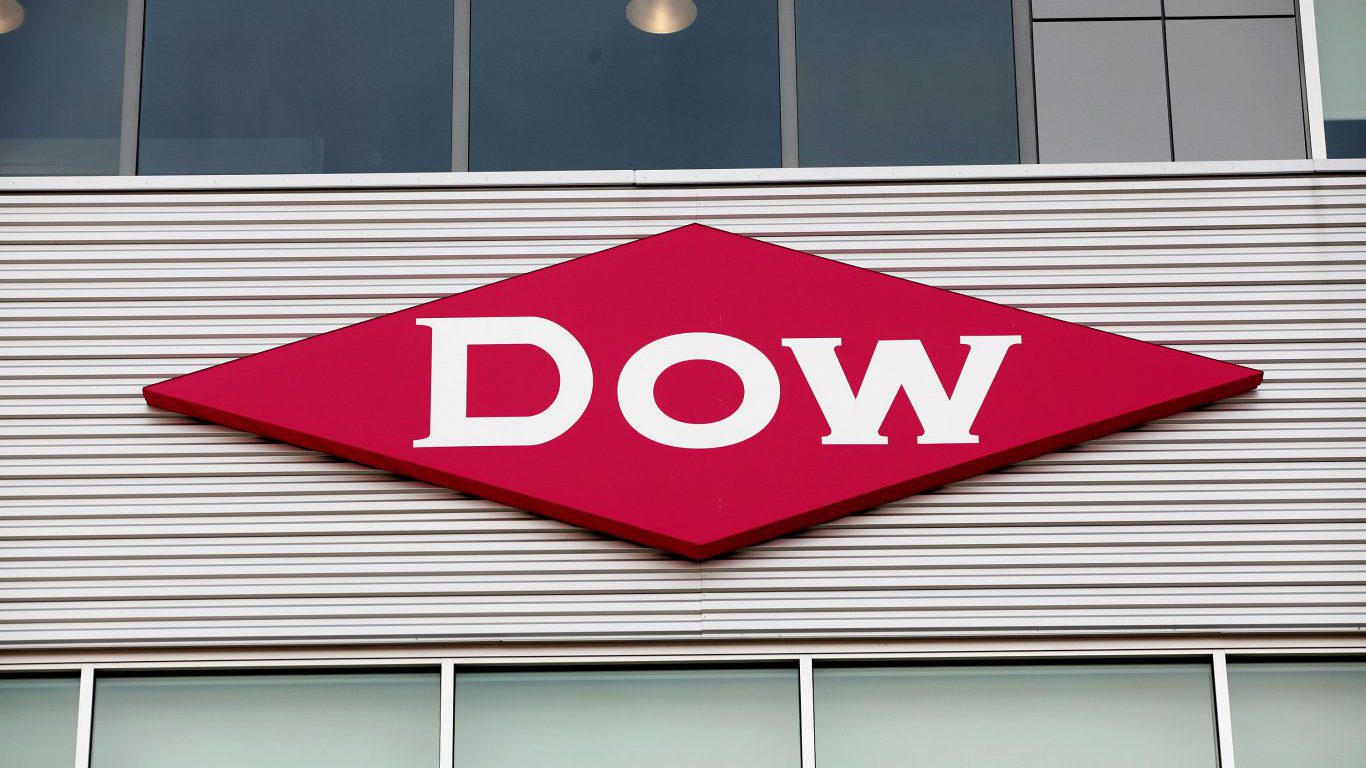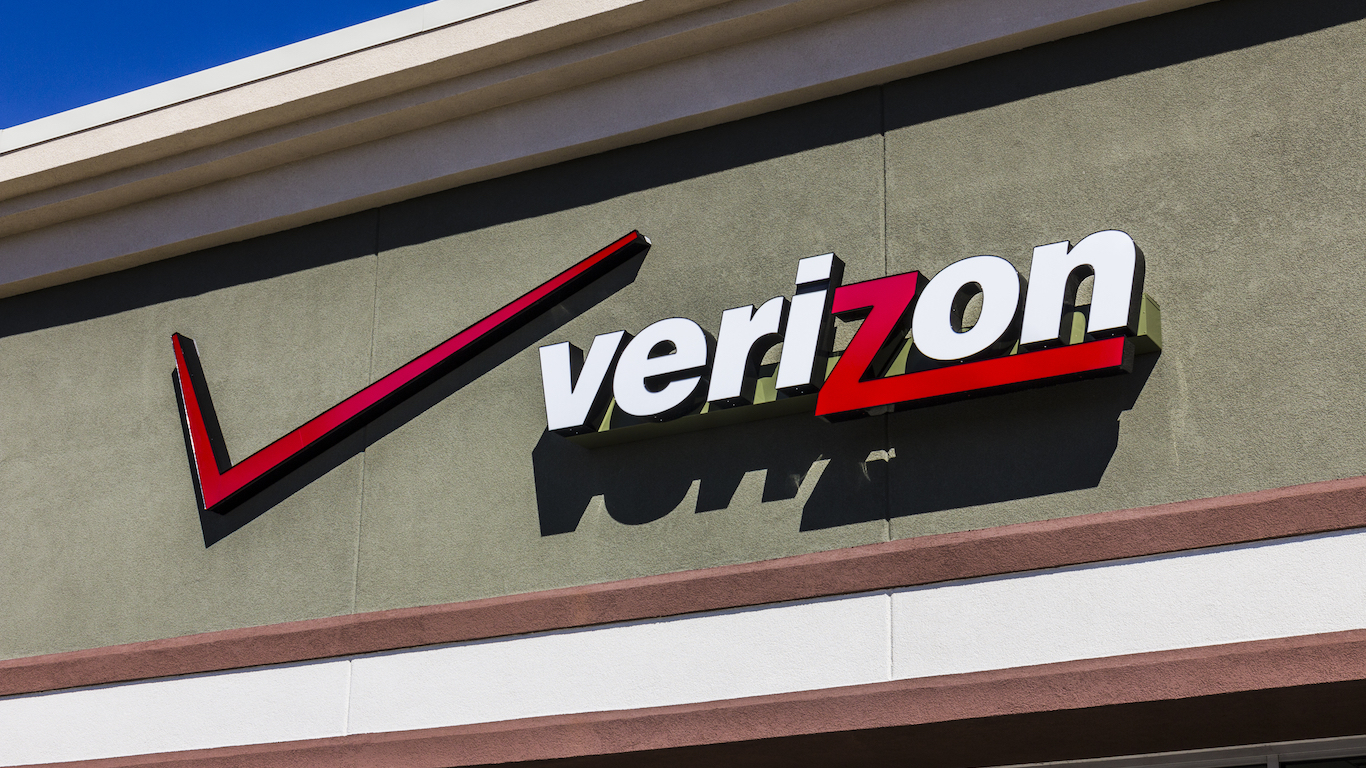Investing
5 Dow Jones Industrials Blue Chip High-Yield Dividend Giants Are Still On Sale

Published:

24/7 Wall St. Insights
Since 1926, dividends have contributed approximately 32% of the total return for the S&P 500, while capital appreciations have contributed 68%. Therefore, sustainable dividend income and capital appreciation potential are essential for total return expectations.
A study from the Hartford Funds, in collaboration with Ned Davis Research, found that dividend stocks delivered an annualized return of 9.18% over the past half-century (1973-2023). Over the same timeline, this was more than double the annualized return for non-payers (3.95%).
The venerable Dow Jones Industrials has had a solid trailing year, up 20% over the past 52 weeks, but its performance in 2024 pales in comparison to the S&P 500 and the Nasdaq, up only 8% versus 18.5% for the S&P 500 and 21.3% for the Nasdaq. The most significant reason for the disparity is that most of the Magnificent 7, especially the stocks that have soared the most, are not in the index.
We decided to look through the 30 stocks that make up the DJIA for blue chip sector giants that are trading at reasonable metrics, offer dependable and outsized dividends, and have solid total return potential for the rest of 2024 and, most importantly, in 2025. In addition to offering outstanding passive income streams, you can buy and hold these companies forever.

Dividend stocks provide investors with reliable streams of passive income. Passive income is characterized by its ability to generate revenue without requiring the earner’s continuous active effort, making it a desirable financial strategy for those seeking to diversify their income streams or achieve financial independence.

This integrated giant is a safer way for investors looking to position themselves in the energy sector. It pays a rich 4.50% dividend. Chevron Corp. (NYSE: CVX) engages in integrated energy and chemicals operations worldwide through its subsidiaries.
The company operates in two segments:
The Upstream segment is involved in the following:
The Downstream segment engages in:
Chevron announced in the fall that it has entered into a definitive agreement with Hess Corp. (NYSE: HES) to acquire all of the outstanding shares of Hess in an all-stock transaction valued at $53 billion, or $171 per share based on Chevron’s closing price on October 20, 2023. Under the terms of the agreement, Hess shareholders will receive 1.0250 shares of Chevron for each Hess share. The transaction’s total enterprise value, including debt, is $60 billion.
Three lawsuits have been filed against Hess, charging inadequate disclosure over the sale, and Chevron has said arbitration over Hess’ Guyana assets could delay the closing timeline until October 2025. However, most Wall Street analysts feel the deal will ultimately be completed, and Chevron will emerge even more powerful in the energy sector.
Warren Buffett’s Berkshire Hathaway owns 6.7% of Chevron’s outstanding stock, 122,980,207 shares, and the energy giant makes up 5.1% of the portfolio. Each year, the stock generates $776,734,888 in dividend income for Berkshire Hathaway.

This old-school legacy tech giant posted solid results for the second quarter and also pays a solid 3.17% dividend. Cisco Systems Inc. (NASDAQ: CSCO) designs, manufactures, and sells Internet Protocol-based networking and other products related to the communications and information technology industry in the Americas, Europe, the Middle East, Africa, the Asia Pacific, Japan, and China.
The company also offers a switching portfolio that encompasses campus switching as well as:
In addition, it provides:
Further, the company offers its customers a range of service and support options, including technical support, advanced services, and advisory services.
It serves businesses of various sizes, public institutions, governments, and service providers. The company sells its products and services directly and through systems integrators, service providers, other resellers, and distributors. Cisco Systems has strategic alliances with other companies.

This company was spun out from DuPont in 2019 and offers investors growth and income potential with a hefty 5.29% dividend. Dow Inc. (NYSE: DOW) is a leading materials science company formed by the merger of Dow and DuPont in 2017 and subsequent spin in 2019.
The company is organized into three principal divisions:
The company’s segments include Agricultural Sciences, which provides crop protection, seed/plant biotechnology products and technologies, urban pest management solutions, and healthy oils.
Consumer Solutions, which consists of:
Infrastructure Solutions, which consists of:

The legacy blue-chip tech giant pays a solid 3.40% dividend and looks to break out to new 52-week highs while offering conservative investors a safer way to play the sector. International Business Machines Corp. (NYSE: IBM) and its subsidiaries provide integrated solutions and services worldwide.
The company operates through four segments:
The Software segment offers a hybrid cloud and AI platforms that allows clients to realize their digital and AI transformations across the applications, data, and environments in which they operate.
The Consulting segment focuses on skills integration for strategy, experience, technology, and operations by domain and industry.
The Infrastructure segment provides on-premises and cloud-based server and storage solutions, as well as life-cycle services for hybrid cloud infrastructure deployment.
The Financing segment offers client and commercial financing that facilitates IBM clients’ acquisition of hardware, software, and services.
The company has a strategic partnership with various companies, including:

This top telecommunications company offers tremendous value, trading at 8.75 times estimated 2025 earnings and paying investors a hefty 6.48% dividend. Verizon Communications Inc. (NYSE: VZ), through its subsidiaries, provides communications, technology, information, and entertainment products and services to consumers, businesses, and governmental entities worldwide.
It operates in two segments:
The Consumer segment provides wireless services across the wireless networks in the United States under the Verizon and TracFone brands and through wholesale and other arrangements.
It also provides fixed wireless access (FWA) broadband through its wireless networks and related equipment and devices, such as:
The segment also offers wireline services in Mid-Atlantic, Northeastern United States, and Washington D.C. through its fiber-optic network, Verizon Fios product portfolio, and a copper-based network.
The Business segment provides wireless and wireline communications services and products, including:
Four Dividend Kings Passive Income Investors Love as Interest Rates Plunge
Thank you for reading! Have some feedback for us?
Contact the 24/7 Wall St. editorial team.